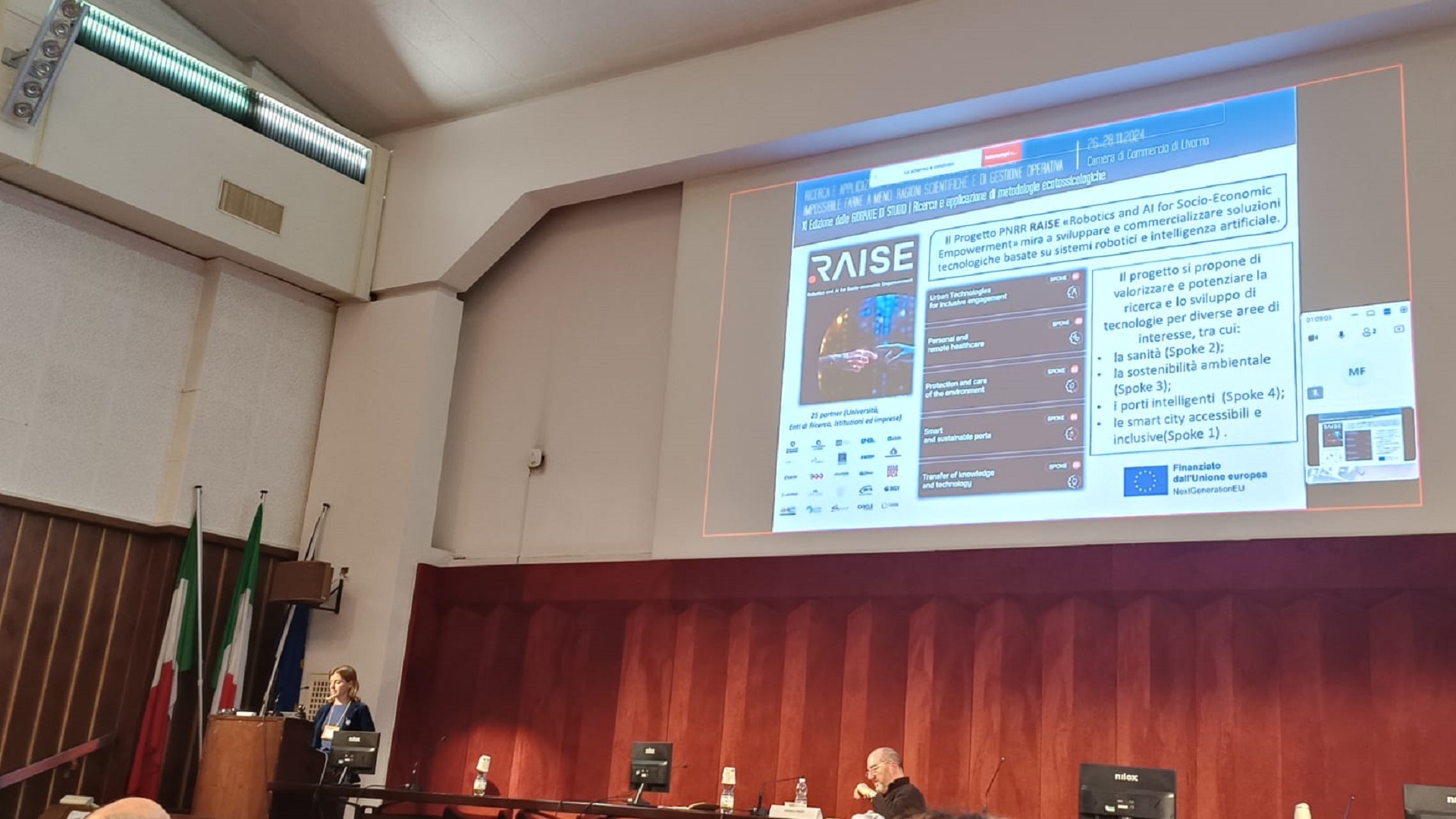
From November 26 to 28, 2024, Livorno hosted the eleventh edition of the Study Days “Research and Application of Ecotoxicological Methodologies”, a biennial event promoted by ISPRA since 2006.
This event serves as a reference point for the Italian scientific community, regulatory bodies, private enterprises, and all stakeholders interested in ecotoxicology and its practical applications, with a focus on regulatory evolution and the sector’s new frontiers.
In a context marked by discussions on emerging contaminants, environmental health, waste management, and soil issues, Veronica Piazza, a researcher at CNR-IAS, presented the preliminary results of Spoke 3 of the RAISE program, titled “New Endpoints and Early Warning Systems for Environmental Monitoring”.
The project aims to develop innovative tools for the early detection of environmental contamination, offering concrete solutions to future ecotoxicological challenges. This goal aligns with the mission of Spoke 3, which is dedicated to creating advanced technologies for environmental monitoring and protection across various contexts, including water, air, and soil.
The core of the presentation focused on the importance of integrating new monitoring methodologies with early warning systems that use AI tools to detect risk signals in real time. These tools represent a crucial step in protecting ecosystems, enabling timely and targeted interventions. Although still in its preliminary phase, the project has already shown significant potential in improving environmental management, both locally and internationally.
The talk also highlighted the importance of interdisciplinary collaboration between the National Research Council (CNR-IAS), ON AIR Srl, and Spindox, within Spoke 3 of RAISE. This cooperation underscores how essential it is to combine diverse expertise in addressing complex problems like environmental contamination.
The Study Days provided an opportunity to share these new perspectives with an audience of experts, fostering an open dialogue about the possibilities offered by technological innovation in ecotoxicology.
The presented project fits within this trajectory, aiming to transform environmental monitoring from a reactive activity into a proactive practice capable of anticipating emergencies.

